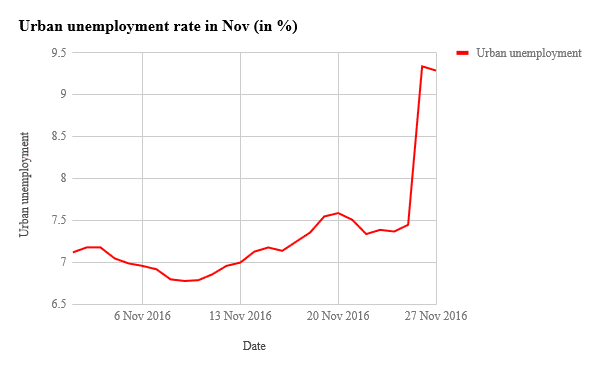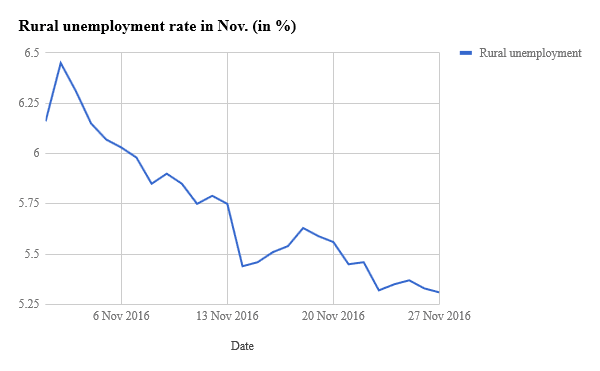What is the overall impact of demonetisation on employment in India?
It's been almost a year since Prime Minister N.Modi announced the demonetisation exercise. It was quite a surprise move on the part of Indian government to weed out the menace of black money, counterfeit currencies and terror funding. A year after the said move, the media has been abuzz contemplating the success and/or failure statistics for the same. There are many other aspects of the issue namely social costs, political gains and economic impact, however as a young citizen of the country, what concerns me most is the impact it had on employment opportunities for the millennial generation.
India, is the country with 64.4 % of its population in the age bracket of 15-59 years. This also means that we have most of our people in the productive work age bracket. Hence it goes without saying that in order for India to reap the dividends of its demographic potential, it has to first equip its workforce with the necessary skills and provide the requisite employment opportunities to its people, to be able to contribute to the national economy.
 The demonetisation drive in the recent past however for all its potential gains, might have wrecked the plans. Informal economy constitutes a large chunk of Indian economy(around 80%), and it transacts mostly in cash payments alone. The economy demand-supply cycle chain has been on decline generally (even after a year). Since consumer demand has slowed and consequently industrial production has declined, employment generation has been adversely impacted by the currency demonetisation drive. The manufacturing sector which accounts for the highest employment of skilled and semi-skilled labourers, is witnessing slowdown in production; not only less jobs are being created but lay-offs are also taking place at a higher rate.
The demonetisation drive in the recent past however for all its potential gains, might have wrecked the plans. Informal economy constitutes a large chunk of Indian economy(around 80%), and it transacts mostly in cash payments alone. The economy demand-supply cycle chain has been on decline generally (even after a year). Since consumer demand has slowed and consequently industrial production has declined, employment generation has been adversely impacted by the currency demonetisation drive. The manufacturing sector which accounts for the highest employment of skilled and semi-skilled labourers, is witnessing slowdown in production; not only less jobs are being created but lay-offs are also taking place at a higher rate.
 The job losses might be temporary, however they still affect the daily wage laborers and other labour-intensive sectors like textiles, garments, leather and jewellery.
The job losses might be temporary, however they still affect the daily wage laborers and other labour-intensive sectors like textiles, garments, leather and jewellery.
We might bounce on track, as the economy slowly recovers but the losses even with little gains might leave some long-lasting scars on the public psyche. So, do you folks too agree with me on the subject? Or are your thoughts a bit different? Would be delighted to know in the discussion below.
Graphs: Centre for Monitoring Indian Economy
India, is the country with 64.4 % of its population in the age bracket of 15-59 years. This also means that we have most of our people in the productive work age bracket. Hence it goes without saying that in order for India to reap the dividends of its demographic potential, it has to first equip its workforce with the necessary skills and provide the requisite employment opportunities to its people, to be able to contribute to the national economy.


We might bounce on track, as the economy slowly recovers but the losses even with little gains might leave some long-lasting scars on the public psyche. So, do you folks too agree with me on the subject? Or are your thoughts a bit different? Would be delighted to know in the discussion below.
Graphs: Centre for Monitoring Indian Economy
0
